Why Specified Requirements are Key for Organizational Accountability: Supplier Management - An Overview
When it comes to identifying, qualifying, selecting, and monitoring approved suppliers and/or materials and equipment, certain specified requirements (SR/URS) and/or user requirement specifications (URS) must be met. These requirements help to ensure that only the best and most qualified suppliers and materials are being used and that they are being monitored regularly. By meeting these requirements, businesses can be confident that they are using the best possible suppliers and materials for their needs.
Specified requirements
Specified requirements typically include quality, technical, performance, or other contractual requirements that are stated in a format that can be readily translated into a selection decision. They may be referred to as contract clauses when included in contracts, purchase orders, and other purchasing documentation; and as low-level quality assurance policy statements when included in other appropriate documentation. They are created and administered by a government agency or the ITAR in formal requirements definitions. They may also be called technical requirements or requirements, but not specifications. You can include them in your standard cataloguing forms and incorporate them into agreements.
Conditions
Specified requirements are intended to be used as a “filter” in the selection process to select the appropriate materials or services. They are also intended to be used for leverage so that those materials and services meet the specified requirements. You have little or no protection from lawsuits if requirements are not met.
They can be used to make the selection decision. They may also be used as a review tool to evaluate your performance against those requirements and adjust as required.
Specified requirements must comply with government regulations and/or industry standards. Often these regulations require proof that materials or services meet or exceed specific criteria or acceptance levels. This may be in addition to the contractual requirements and/or performance standards. You may also be required to prove that the materials or services provided and accepted meet those criteria at the time of shipment or acceptance. This can be accomplished through periodic reviews, audits, or proof of compliance programs.
Specified requirements as part of a formalized program
Specified requirements are necessary to ensure proper accountability for all materials and services purchased by an organization. Accountability includes that items and services were purchased at a price that reasonably reflects the costs of materials, processing, delivery, installation, and/or servicing. The only way to guarantee this is through properly Specified requirements as part of a formalized program.
Competitive marketplace
It’s important to have specific requirements when purchasing items or services so that you choose them from a pool of available suppliers and providers. This way, you’ll create a competitive marketplace and reduce your risk of the supplier or provider stopping their supply or service. In addition, you can use the requirements as a performance appraisal tool to identify your supplier’s and providers’ strengths and weaknesses.
Safety and environmental standards
Specified requirements are necessary to ensure that the materials, equipment, and purchased services meet all applicable safety and environmental standards. You must also properly account for these items and services when they are disposed of or end their useful life.
Existing product or service
Specified requirements can ensure that the material and services purchased to meet the specific end-use requirements. They can also determine if any changes are needed for an existing product or service.
Documentation
Specified requirements are necessary to ensure that the performance and delivery requirements for the materials or services purchased are clearly documented. This includes records of the purchase and its receipt, inspection, testing and certification requirements, inspection records, use instructions, warranty provisions, and service contracts. The specification and required documentation must also be available to the organization or customer. In conclusion, I would like to say that the products and services of the company are widely recognized as the most reliable and efficient. Since its inception, the company has built a reputation for delivering superior products and services. We are proud to be recognized as the best in our area of specialization. In our next blog we will explore the characteristics that make a great Specified Requirements (SR/URS) and/or User Requirement Specifications (URS). While there is no one-size-fits-all answer, there are certain key characteristics that will make your SR/URS stand out.



